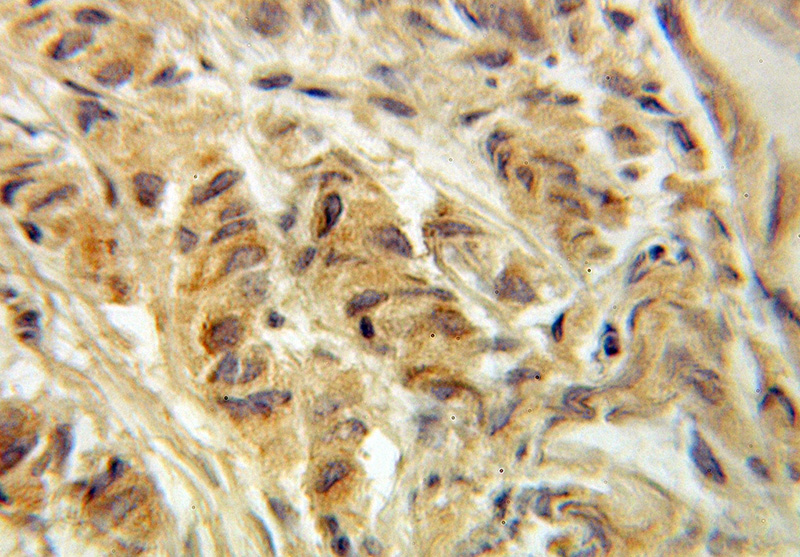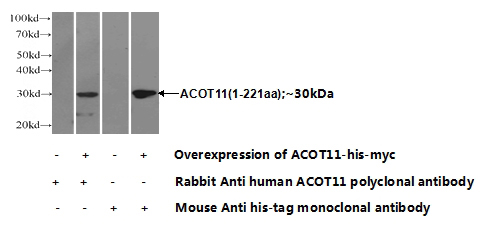-
Product Name
ACOT11 antibody
- Documents
-
Description
ACOT11 Rabbit Polyclonal antibody. Positive WB detected in Transfected HEK-293 cells. Positive IHC detected in human prostate cancer tissue.
-
Tested applications
ELISA, IHC, WB
-
Species reactivity
Human,Mouse,Rat; other species not tested.
-
Alternative names
ACOT11 antibody; acyl CoA thioesterase 11 antibody; BFIT antibody; BFIT1 antibody; BFIT2 antibody; KIAA0707 antibody; STARD14 antibody; THEA antibody; THEM1 antibody
-
Isotype
Rabbit IgG
-
Preparation
This antibody was obtained by immunization of ACOT11 recombinant protein (Accession Number: BC001517). Purification method: Antigen affinity purified.
-
Clonality
Polyclonal
-
Formulation
PBS with 0.1% sodium azide and 50% glycerol pH 7.3.
-
Storage instructions
Store at -20℃. DO NOT ALIQUOT
-
Applications
Recommended Dilution:
WB: 1:500-1:5000
IHC: 1:20-1:200
-
Validations

Immunohistochemical of paraffin-embedded human prostate cancer using Catalog No:107743(ACOT11 antibody) at dilution of 1:100 (under 10x lens)

Transfected HEK-293 cells were subjected to SDS PAGE followed by western blot with Catalog No:107743(ACOT11 Antibody) at dilution of 1:1000
-
Background
ACOT11(Acyl-coenzyme A thioesterase 11) is also named as BFIT, KIAA0707, THEA.BFIT is mapped to syntenic regions of chromosomes 1 (human) and 4 (mouse) associated with body fatness and diet-induced obesity, potentially linking a deficit of BFIT activity with exacerbation of these traits and supports the transition of this tissue towards increased metabolic activity, probably through alteration of intracellular fatty acyl-CoA concentration(PMID:11696000).
Related Products / Services
Please note: All products are "FOR RESEARCH USE ONLY AND ARE NOT INTENDED FOR DIAGNOSTIC OR THERAPEUTIC USE"
